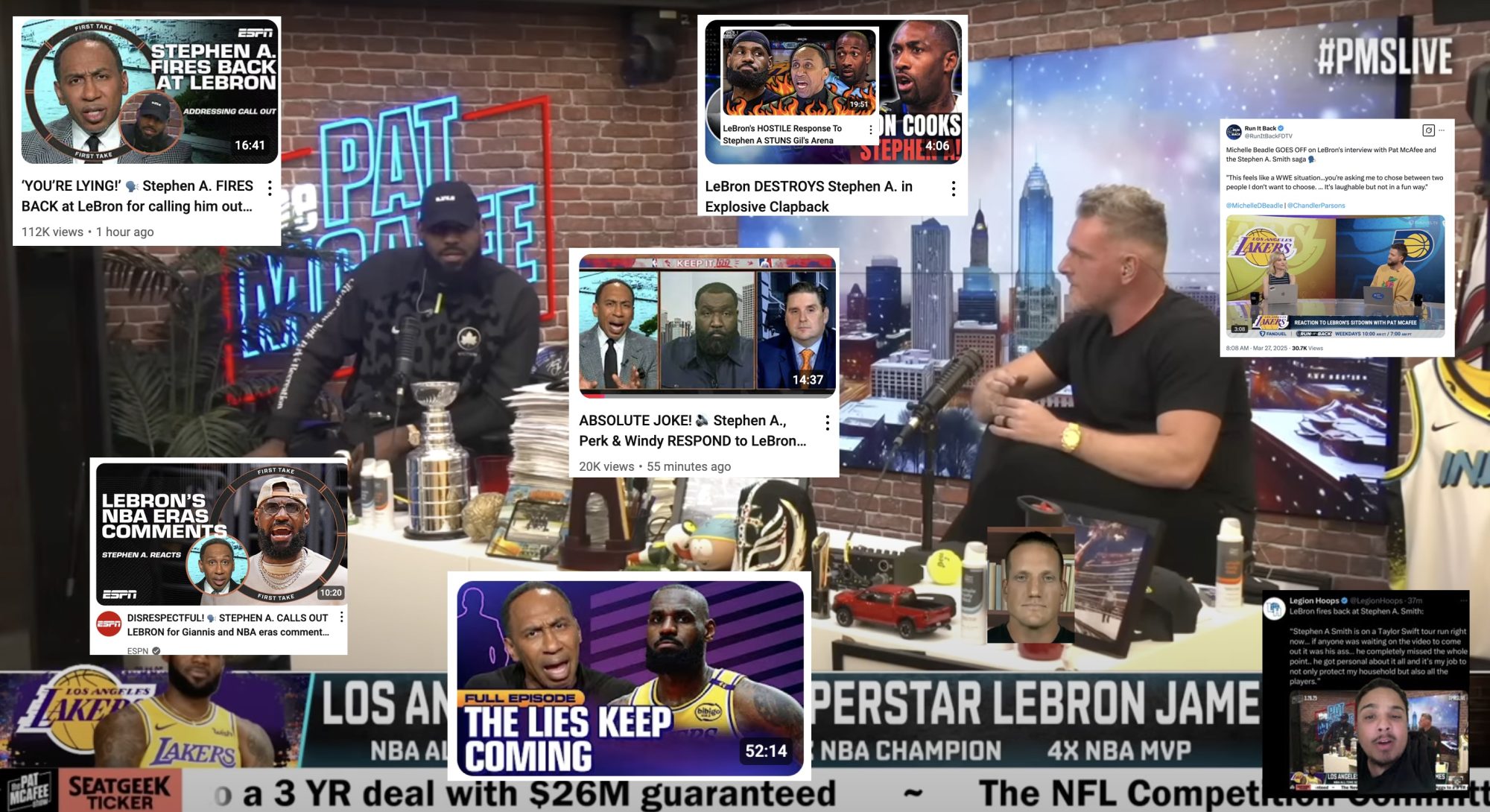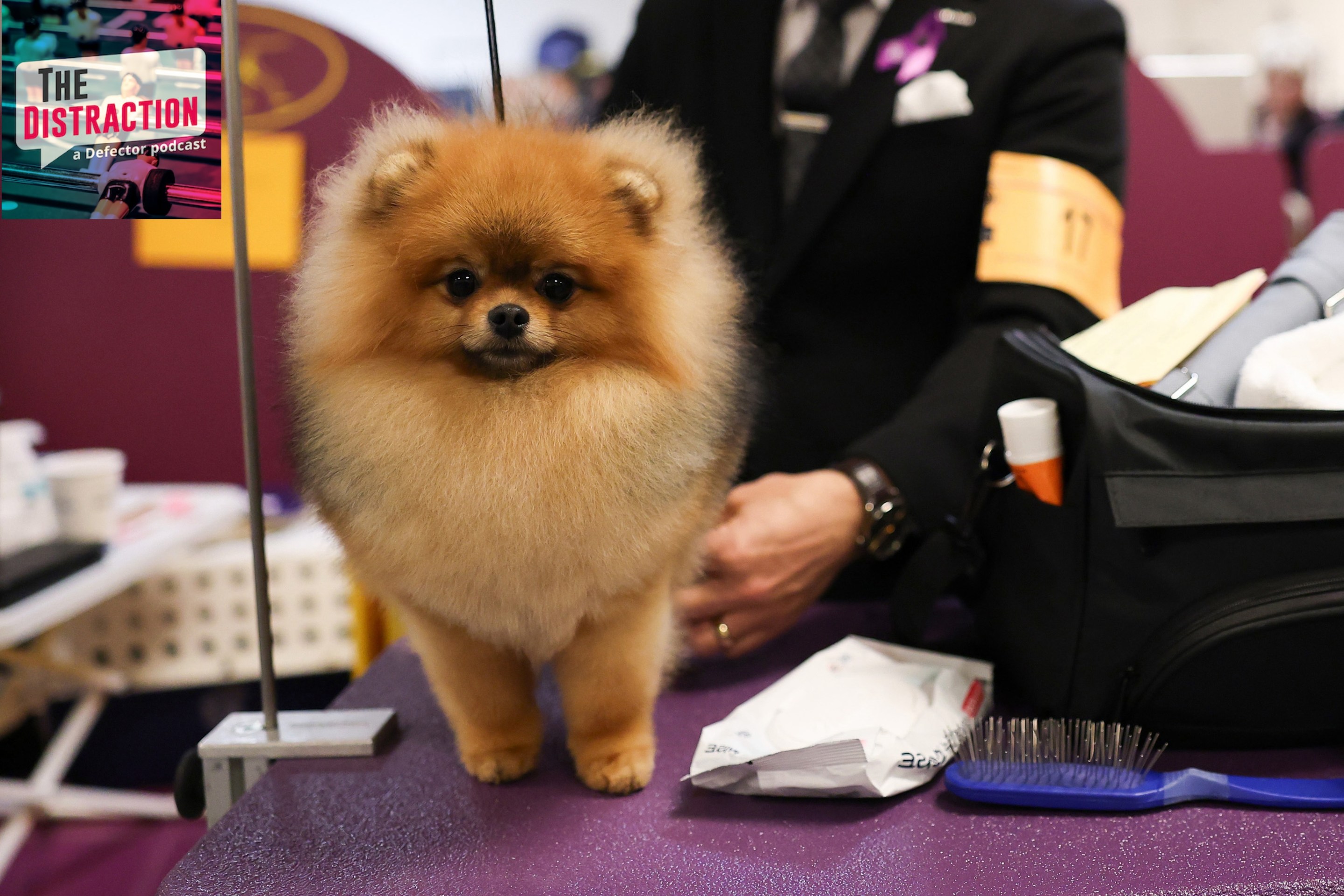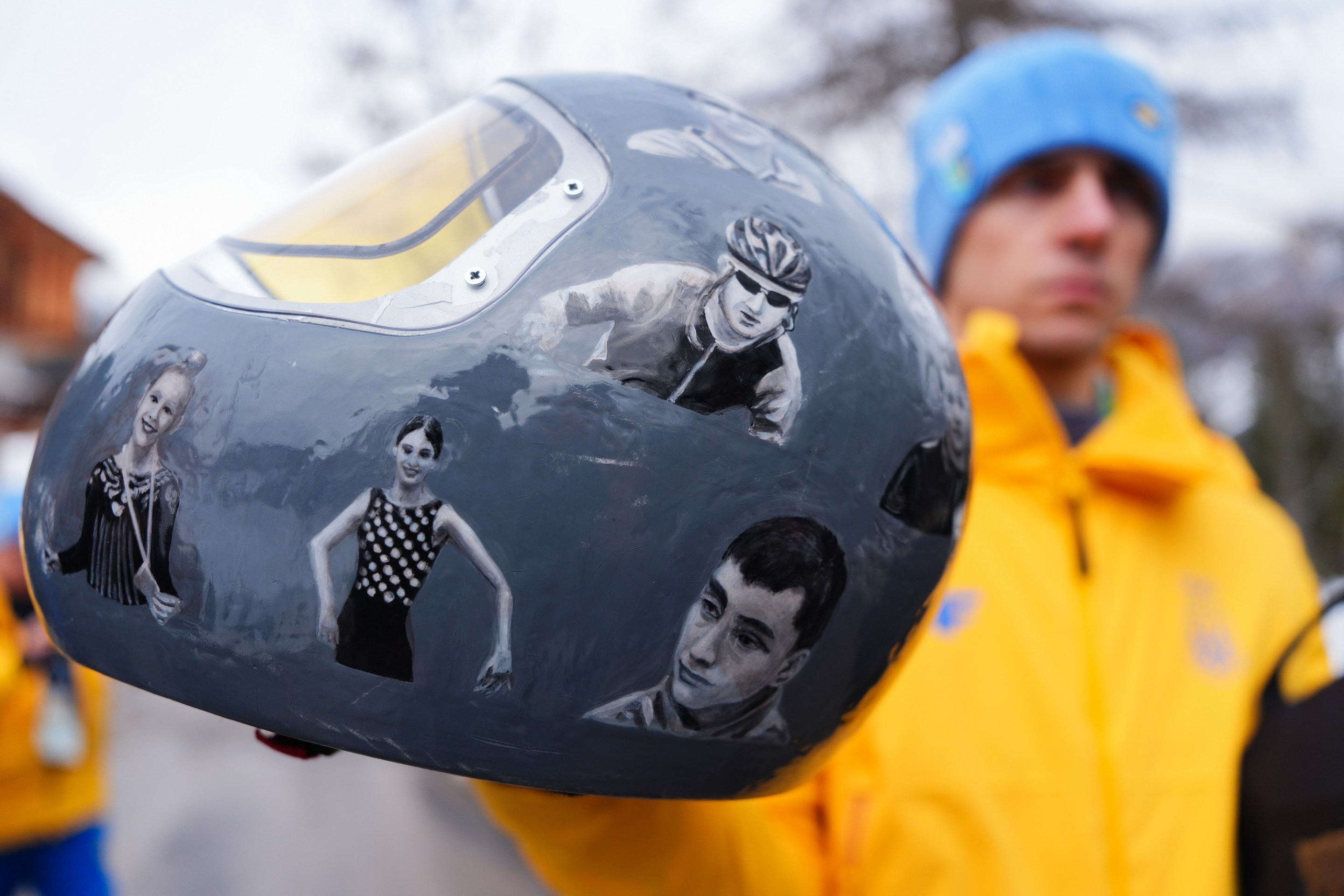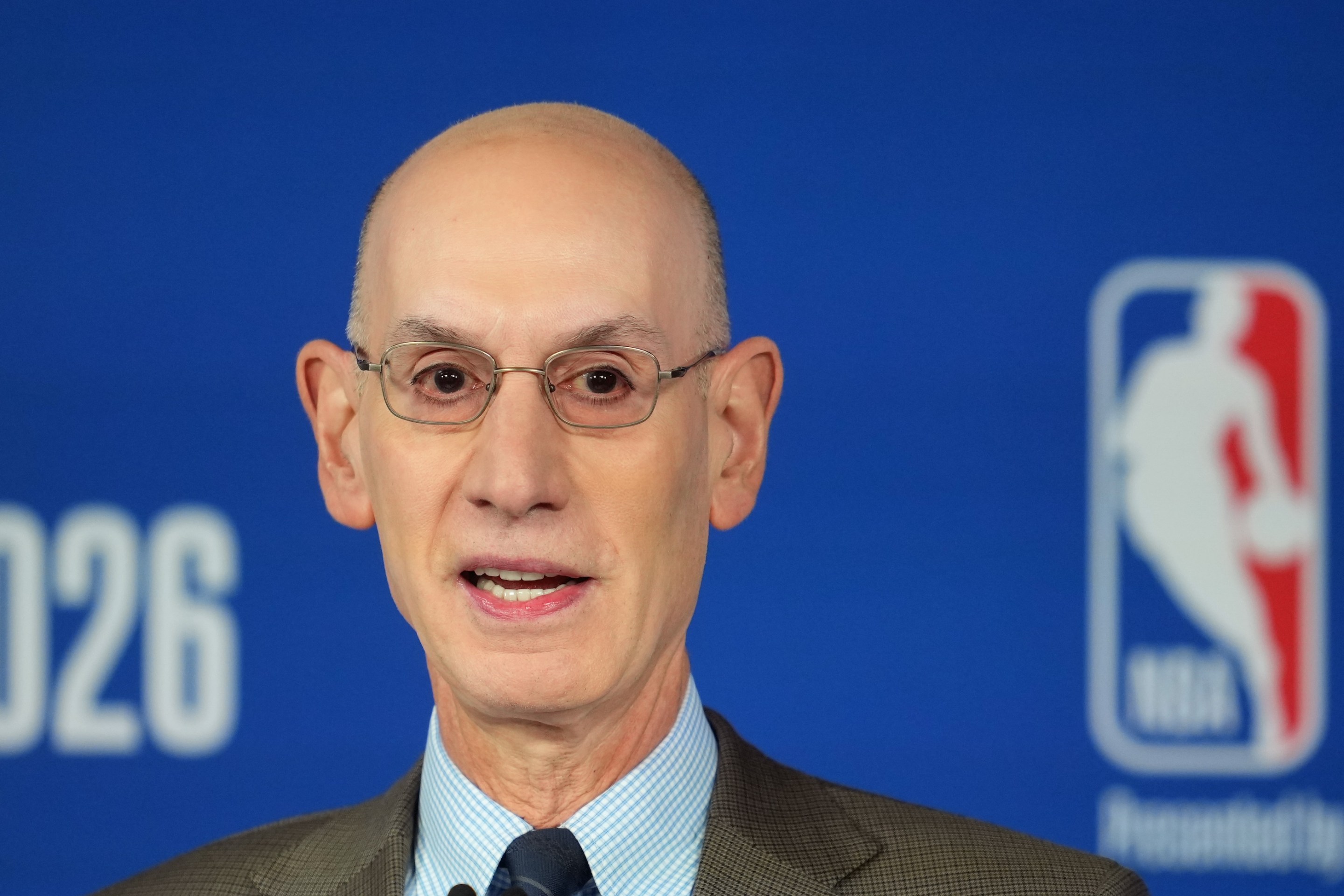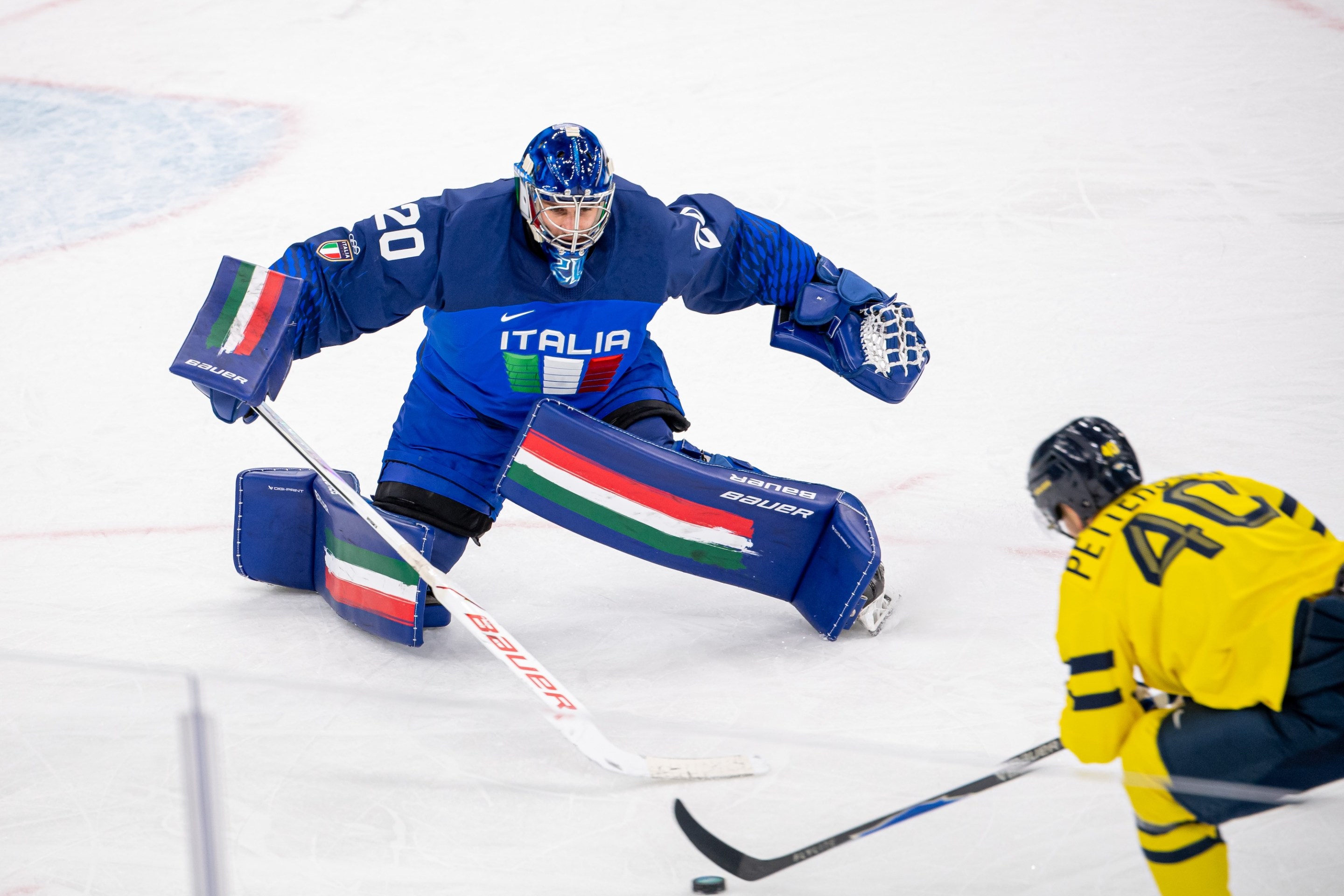LeBron James went on ESPN Sunburn Lord Pat McAfee's show on Wednesday; while there, he said some mostly anodyne stuff about Michael Jordan and talked a little about his sons Bronny and Bryce. The parts of the interview that achieved escape velocity, though, were comments James made about two other ESPN personalities: Stephen A. Smith and Brian Windhorst.
Smith and James have been feuding for a couple months now, with Smith identifying that the concerned-uncle angle is the most likely to provoke a reaction and being proven broadly correct, as James confronted him on the court after beating the Knicks on March 6. "If it's one person that couldn't wait until the video had dropped so you could address it, it's your ass. Like, seriously," James said, to McAfee, of his courtside confrontation. He allowed that criticism was fine up to a point, "But when you take it and you get personal with it, it's my job to not only protect my damn household but protect the players."
Windhorst, who parlayed going to the same high school as James into a job on ESPN's NBA desk, also caught some heat. "This guy says he's my best fucking friend," James said of Windhorst. "These guys are just weird." The substance of this is not really all that interesting, though I find its form fascinating, especially as it highlights the fragmented, paranoid state of ESPN.
Consider: If you opened the ESPN app—or, if you are into archeology, navigated to ESPN.com—at any point in the last 20 or so hours, you were greeted by a headline from Lakers beat writer Dave McMenamin, telling you "LeBron opens up on relationship with idol Jordan." The story is a fluffy aggregation of the interview. While McMenamin's story mostly concerns itself with James's comments on Jordan and his sons, its negative space makes it a curious artifact. By its nature, it cannot engage with the interview on the terms under which it was conducted, nor with the effects it had.
It is worth denuding this snarled knot of content and diagramming it, only to make clear how weird this all is: An athlete joined one ESPN show ahead of his team's game, later that night on ESPN, to talk shit about one ESPN NBA guy and another ESPN TV guy, a piece of news most prominent on front-page ESPN for its chief LeBron James correspondent writing a story that mentioned none of the ESPN-on-ESPN violence. One wonders whether this represents a snake eating its own tail or a gnarl of snake-shaped bones.
McAfee is generally incapable of the sort of critical thinking necessary to draw out meaningful insights, though a game he does understand is how to generate attention. The Jordan stuff is somewhat interesting, though by its nature also inert: Michael Jordan no longer owns the Charlotte Hornets and won't be responding to James engaging in a bit of preemptive legacy talk. There is no potential for a second news cycle the way there is with Smith, with whom James has been snipping since before the all-star break. Reactors reacting to reactions is the cleanest renewable source of energy in sports media, and James engaging with Smith, even if to call him a loser and a clown, is precious manna for ESPN.
"I know he’s going to be happy as hell when he hears me talking about him," James said, to McAfee, about Smith. "He’s going to get home and grab some ice cream out of the fucking freezer and sit in his chair in his tighty-whities on the couch." Rich imagery, and yes, Smith REACTED to the news Thursday morning with HARD TRUTHS. The substance of those truths is inherently uninteresting, though I find the form fascinating; Smith's FIRING BACK exists alongside the ESPN NBA desk tsk-tsking James for his Windhorst comments, which he made to a different ESPN host.
It'd be foolish to expect any sort of message discipline or unified front from the multifarious personalities of ESPN, though the Worldwide Leader's fragmentation, and the reasons for that fragmentation, are worth considering; they hint at the company's strange position. The notion of a TV network is itself archaic, and ESPN is adapting to a TikTok-ified, fractionalized sports media landscape, one where individual people talking to you through their front-facing camera are far more relevant than a guy sitting behind a desk on SportsCenter and running you through the best highlights of the day. Look at the money here: McAfee is getting the equivalent of a 2010 NBA max contract, and SportsCenter is shutting down its L.A. production studio. Paying for big individual personalities is not a certain bet, though it's far more in line with the consumptive and productive patterns of latter-day video content.
As for the specifics of those patterns, while the actual material substance of sports is still relevant to these personalities, the incentive structures in place make picking fights and centering the show and its creator much more rewarding than, say, picking over some NBA team's after-timeout execution. It's something like a perpetual motion machine. Consider that McAfee being a ruddy moron is more or less the point of his show, and that Smith has long since transcended the need for sports as raw material to refine into takes. When you bet big on personalities as the driver of interest, you necessarily sacrifice cohesion—and you also decouple these shows from their ostensible coverage area.
The irony here is that James is engaging in his feud with Smith both as an athlete and also as a competitor. The same day he revved up the ESPN on ESPN on ESPN machine, LeBron also announced that he would be bringing back his podcast, Mind The Game, with new co-host Steve Nash. One of the things that made the first iteration of the show, with James's now-coach JJ Redick, stand out was that it was actually about basketball. It might be too much to credit James with using his ESPN appearance to slyly expose the limits of the network's ouroboric form, but intentional or not, that's what happened.
Oh, by the way, James hit a game-winner for his team later Thursday night. That also happened on ESPN.
